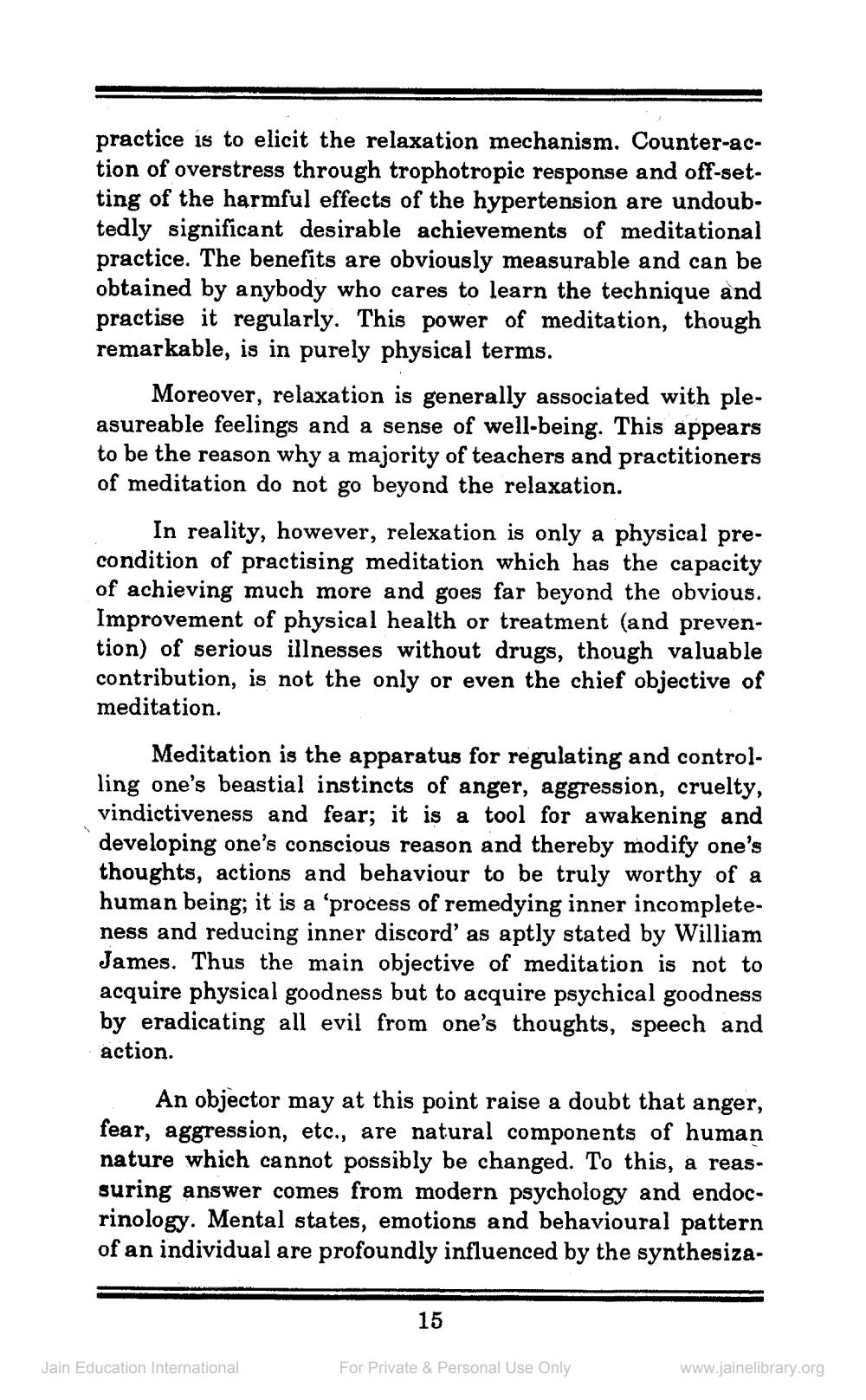________________
practice is to elicit the relaxation mechanism. Counter-action of overstress through trophotropic response and off-setting of the harmful effects of the hypertension are undoubtedly significant desirable achievements of meditational practice. The benefits are obviously measurable and can be obtained by anybody who cares to learn the technique and practise it regularly. This power of meditation, though remarkable, is in purely physical terms.
Moreover, relaxation is generally associated with pleasureable feelings and a sense of well-being. This appears to be the reason why a majority of teachers and practitioners of meditation do not go beyond the relaxation.
In reality, however, relexation is only a physical precondition of practising meditation which has the capacity of achieving much more and goes far beyond the obvious. Improvement of physical health or treatment (and prevention) of serious illnesses without drugs, though valuable contribution, is not the only or even the chief objective of meditation.
Meditation is the apparatus for regulating and controlling one's beastial instincts of anger, aggression, cruelty, vindictiveness and fear; it is a tool for awakening and developing one's conscious reason and thereby modify one's thoughts, actions and behaviour to be truly worthy of a human being; it is a 'process of remedying inner incompleteness and reducing inner discord' as aptly stated by William James. Thus the main objective of meditation is not to acquire physical goodness but to acquire psychical goodness by eradicating all evil from one's thoughts, speech and action.
An objector may at this point raise a doubt that anger, fear, aggression, etc., are natural components of human nature which cannot possibly be changed. To this, a reassuring answer comes from modern psychology and endocrinology. Mental states, emotions and behavioural pattern of an individual are profoundly influenced by the synthesiza
Jain Education International
15
For Private & Personal Use Only
www.jainelibrary.org




